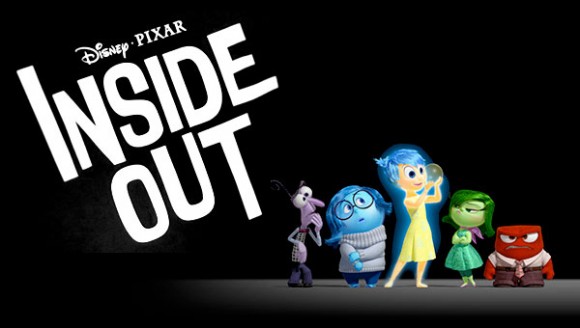It's no secret at this point that I cry at movies. But when I find myself crying from the opening scene, I have to stop and question what the hell is going on. Of course, being a parent means you're on a constant knife edge of weep and Inside Out, tilts that edge and aims it right for the heart from frame one. I expected no less from Pixar. On one level it's the story of how one girl's personified emotions deal with change. It rightfully has been receiving much attention for the way it teaches us all, not just children, about our emotions. It deals with depression in very real ways that felt familiar to me. But there are many levels to this story that will undoubtedly reveal themselves differently to all of us. And to me, the level that hit me in the gut and had me barely containing myself in the theater was that it's also a story of how we grow up and the melancholy balance of joy and sadness in childhood memories and how we all face this as parents watching this happen to our kids.
Our main character through this journey is Joy. This is the very first emotion that pops in as soon baby Riley is born and it is Joy who is telling this story. But seconds after Joy pops in, Sadness arrives and it's ultimately their story, Joy and Sadness, and how they find balance. And although Riley's parents are characters in the movie, her emotions, Joy in particular, really play the part of her parents while at the same time being a representation of Riley herself. The way that Joy looks at some of Riley's memories, at times skating alongside the projection as if it were a home movie, can put us in two different mindsets. We can remember our childhoods with a tinge of nostalgia, or we might look at our little ones, growing up before our eyes and want to hold them forever, futility. And if you think about it, both are really the same thing, since we are likely far from being the same person we are now in our own childhood memories.
 |
| Remember that time? |
And that loss of Goofball Island nearly took me over the top. The idea that this little girl was loosing this vital aspect of her personality - the ability to enjoy those silly moments of running around naked before bath-time, slathering her face with chocolate ice cream or acting like a monkey - that was heartbreaking because whether it happens due to depression or not, it's something that I think too often does happen to us eventually. And that's another brilliant touch from this movie. By making the real world story be about the family's move to San Francisco, they were able to focus on a series of events that would trigger much growing up and emotional turmoil without getting bogged down in long term time passage. It's concentrated but yet still manages to hit many notes of change that can come from simply getting older. And it calls attention to some of those changes and hopefully makes us question them. Because at the end of the day, why do we ever have to tear down Goofball Island?
 |
| Mom's Headquarters seems much more orderly. |
All in all, this ranks very high for me on the Pixar list. Yes it's deep and there's tears, but it's also very funny and entertaining. It's got one bit that had my wife and I laughing loudly in the theater, inexplicably all by ourselves. I can only imagine the other parents in the weekday afternoon showing were either taking the moment to nap or they lost Goofball Island down to the foundation and were never able to rebuild. Their loss.

No comments:
Post a Comment